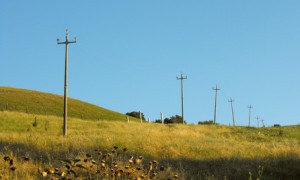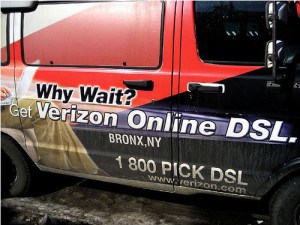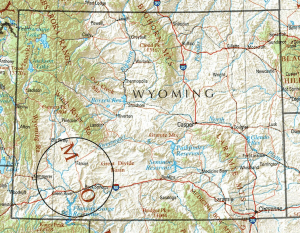 Time Warner Cable is blaming an increase in pole attachment fees in upstate New York for increasing the cost of doing business, despite the fact those increases will not apply to the cable company.
Time Warner Cable is blaming an increase in pole attachment fees in upstate New York for increasing the cost of doing business, despite the fact those increases will not apply to the cable company.
National Grid, which also does business as Niagara-Mohawk, is raising rates for third-party companies to attach new lines to the poles the electric utility owns. The power company says it is the first rate increase since 2007, and covers the cost of engineering, safety reviews, and ongoing infrastructure costs.
The Albany Times-Union quotes Time Warner Cable spokeswoman Lara Pritchard’s reflexive complaints about the rate increases.
“Inevitably, any price increase to poles will impact our costs to bring service,” Time Warner spokesman Lara Pritchard said Monday. “At this time, we have no plans to adjust fees. We periodically assess all of our associated costs to do business, as any company would, and this would factor into that assessment.”
If so, it should be by a factor of zero because the pole attachment fee increases apply only to companies seeking to place new lines on utility poles, not those maintaining or replacing existing cables.
The New York Public Service Commission approved the utility’s request for a change in their “Make Ready” rates, which cover costs associated with new projects. Existing companies, including Time Warner Cable will continue to pay a locked-in rate of $11.13 per pole, which represents no change.
Verizon acknowledged as much, noting the company’s existing fiber and copper wire lines are exempt from the rate hike.
But not every company is being held harmless from the rate increases.
Major projects to extend fiber broadband service to rural Franklin and St. Lawrence counties in upstate New York could be at risk because Niagara Mohawk, the dominant power provider in the region, is raising the rates to place fiber on some 22,000 poles required for the network.
Slic Network Solutions, the Development Authority of the North Country and Ion HoldCo LLC are facing at least $3.5 million in higher pole attachment expenses the utility said nothing about when they reached an agreement with National Grid in December.
Taxpayer grant money is backing the projects, including Slic’s 136-mile network covering parts of Franklin County and another 660-mile project in St. Lawrence County. Ion operates a fiber optic broadband backbone that extends throughout upstate New York.
Keith J. Roland, an attorney with the Herzog Law Firm representing the three companies, has filed a formal complaint with the N.Y. State Public Service Commission, calling the rate increase “unjust, unreasonable, excessive, and unlawful.”
Roland says the increased costs, which he calls “arbitrary,” could threaten the viability of the projects.
“Without access to those poles, SLIC, DANC and Ion and almost any other telecommunications, cable TV and Internet provider in rural area of Niagara Mohawk’s territory would be driven out of business or effectively be precluded from doing business,” the complaint states.


 Subscribe
Subscribe













